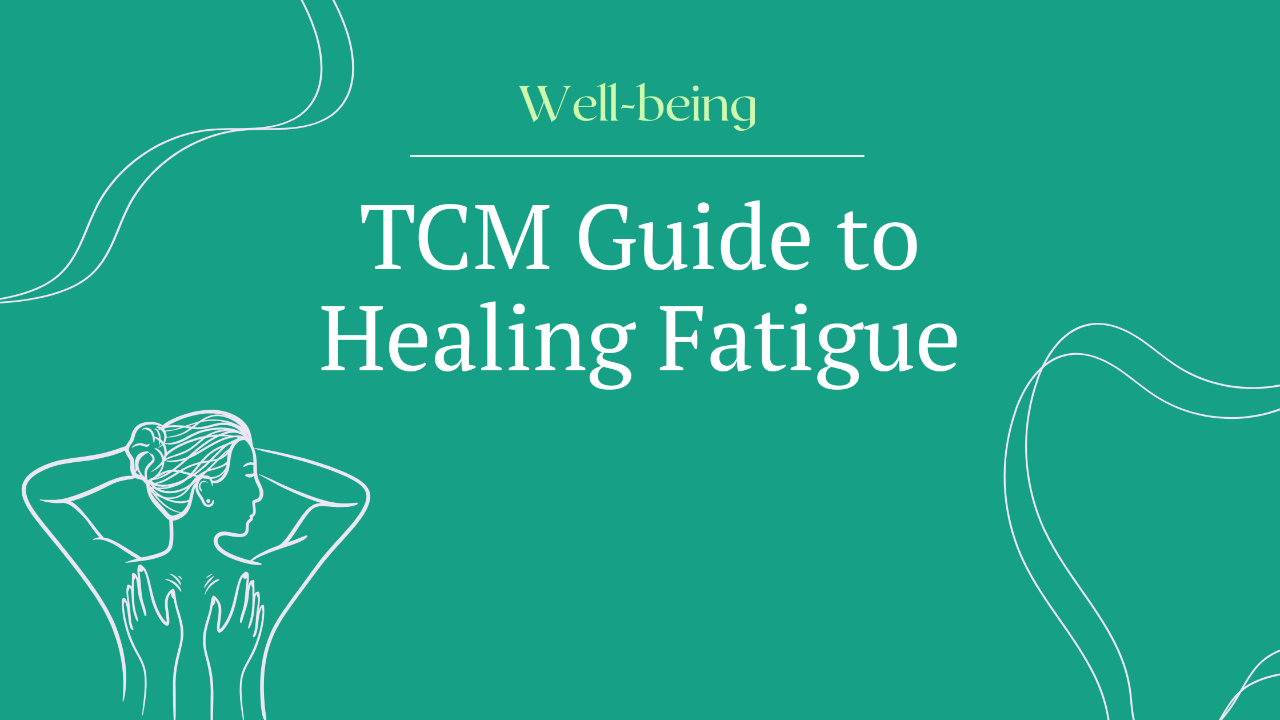✨ Is It Yin or Yang Burnout? A Deeper Way to Understand Fatigue
Oct 22, 2025
Not all burnout is the same.
Some women wake up feeling exhausted before the day even begins. Others are wired until 2 a.m., their minds racing long after their bodies plead for rest. One woman drags herself through meetings with heavy limbs and no appetite; another looks high-functioning from the outside, but inside she’s irritable, anxious, and secretly unraveling.
If you’ve been in the tech or corporate world long enough, you’ve probably cycled through both of these states. What most of us don’t realize is: these aren’t just random symptoms. In Traditional Chinese Medicine (TCM), they point to different types of burnout—and each one needs a completely different recovery approach.
Let’s break it down using the lens of Yin and Yang.
First: What is Yin and Yang in TCM?
Yin and Yang are foundational energies in TCM. They exist in all things, including your body and mind.
🔥 Yang is heat, energy, action, daytime, expression, and ambition.
❄️ Yin is coolness, rest, nourishment, nighttime, introspection, depth.
They need to balance each other for you to feel whole. Burnout, in this system, is a sign that one side is either depleted or in excess.
Yin-Type Burnout: “I’m dry, depleted, and overwhelmed by the world.”
This is common in women who’ve spent years holding everything together without ever resting deeply. You’ve been over-giving, over-stimulated, and under-nourished.
Eventually, your Yin—the fluid, cooling, restoring aspect of your body—gets depleted.
Common signs:
- Dry skin, dry eyes, dry mouth
- Night sweats or hot flashes (even if you’re young)
- Heart palpitations or anxiety at night
- Restlessness with fatigue (you’re tired but can’t relax)
- Insomnia, especially trouble falling asleep
- Irritability, light-headedness, blurry vision
- A cough or sore throat is worse in the morning
- Pulse: thin and rapid (if you check it)
Pattern examples:
- Heart Yin Deficiency: trouble sleeping, anxiety, restlessness, feeling “scattered”
- Liver Yin Deficiency: irritability, dry eyes, blurry vision, tight muscles
- Kidney Yin Deficiency: night sweats, low back pain, hormonal imbalance, fatigue that doesn’t improve with sleep
Healing strategy:
- Prioritize deep rest, not just “self-care.”
- Nourish your Yin through warm, cooked foods, herbs, silence, time off screens, and practices like breathwork or slow movement
- Avoid overheating: intense workouts, caffeine, late nights, hot/spicy foods
- Focus on creating emotional safety—your system needs calm to repair
Yang-Type Burnout: “I crash hard at night and drag myself through the day.”
This form shows up when your Yang energy—your core vitality, drive, warmth—has been running on empty for too long. You pushed through cold mornings, skipped meals, and powered through fatigue. Eventually, your “inner fire” dims.
Common signs:
- Low energy, especially in the morning
- Cold hands and feet
- Back pain is worse at night
- Bloating, gas, loose stools
- Desire for warmth, aversion to cold
- Poor circulation, low libido
- Depression or emotional flatness
- Pulse: deep, weak, and slow
Pattern examples:
- Spleen Yang Deficiency: sluggish digestion, cold limbs, brain fog
- Kidney Yang Deficiency: low back pain, hormonal fatigue, fear of change or instability
- Heart Yang Deficiency: feeling emotionally flat, isolated, or disconnected
Healing strategy:
- Build warmth from the inside out: nourishing soups, warming spices (ginger, cinnamon), slow morning routines
- Wake with the sun, follow seasonal rhythms
- Focus on rebuilding core vitality—this is slow medicine
- Don’t jump into productivity right away. Let your nervous system thaw.
How to Tell Which One You Are
Ask yourself:
- Do I feel hot at night and cold in the morning? Or vice versa?
- Am I emotionally frazzled or emotionally flat?
- Does rest help, or do I feel tired no matter what?
- When do my symptoms feel worse: morning or night?
- Am I craving stimulation or craving stillness?
Your answers will point toward a Yin or Yang pattern. And sometimes, you’re dealing with both.
Why This Matters for Ambitious Women
Many women in corporate and tech are unknowingly treating the wrong kind of burnout.
They try cold juices and HIIT workouts when their body is already Yin-depleted. Or they push through with coffee and productivity hacks when their Yang is exhausted and needs time to recover.
Instead of guessing, you can learn to listen. Your body is telling you exactly what it needs.
Takeaway: Yin Heals Through Nourishment, Yang Heals Through Warmth
You don’t need to give up your ambition. But you do need to learn when to restore versus when to push.
Let this be your reminder:
Burnout isn’t just a mindset issue. It’s an energetic imbalance you can recover from—with the right diagnosis, and a healing strategy that honors your whole system.
Would you like to go deeper into your own diagnosis? I’m working on a practical self-assessment tool you can use to figure out your dominant imbalance and how to heal. Stay tuned.
Welcome to Ambition Redesigned! Where purpose meets progress.
Get one actionable tip delivered to your inbox every Monday.


